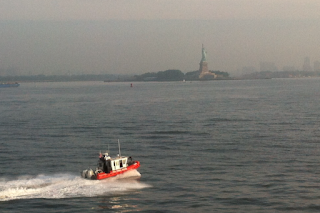A Consideration on the Death of My Father
(written after his passing on Jan 20, 2018)
Well
it may be shocking to us, but he was ready.
The
word is Thanatopsis: derived from the Greek 'thanatos, (meaning death) and
'opsis' (meaning view or sight), invented by American poet William Cullen Bryant, and meaning 'a
consideration of death.’ The poem it was created for was a favorite of
Walter’s, though I might say it was a more of a perseveration he had on death:
The
graves, the pictures of graves, the coffin I helped him build, the poems upon
poems about death, the gravestone designed, the Day of the Dead imagery and
trinkets, the shelves of books on burials, rituals and perspectives on death,
Poe’s ubiquitous presence over his project, and the passing comments in
conversation.
“Someday
I’ll be gone” he’d allude. “I could die any time.” And we’d reshift in our seats, growing ever
familiar with his Danteian obsession. But there’s something I grew to respect
about it—something honest and unabashed, like a child unafraid to call the king
naked. It was his opus, in a way. Death. His great Love. He celebrated her, he
did not tuck her into a corner of the fearful mind, pretending she didn’t exist
with her terrible scythe until those unfortunate times in life when she forces
her presence upon you like a sudden dark, cold rain—an old friend passes, a family
member. No, he brought her into the light and appreciated the beauty in that
blink of time when eyes grow empty but hearts do not. As many poets did before
him, like Bryant, like Poe, he spent time pondering that solitary moment, and what
one was doing right before it, and what happens right after. “I hope I’m alive
when I die.” He wrote.
Walter
looked upon gravestones, these obvious physical markers—with epitaphs so poetically
concise for a entire life lived--and he recognized life unfinished, because the
people underneath them were unforgotten. There was some hope in that. He honored
all those poets when he gathered us in mirth around marble and exhumed the
words of sleeping linguistic engineers. He revived their legacies and
encouraged us all to do the same. Has Edna St. Vincent-Millay’s life truly
ended, or Margerie Frost’s, or any of theirs, if The Dead Poet Guy celebrates
their words?
I
spent six weeks in the Poemobile with this artist, traipsing around the
American West where I now live, finding the graves of poets passed. D.H. Lawrence
snuggled in his shrine in the mountains of Taos, New Mexico with his feline
companion. Others in traditional plots. Some scattered to sea. And in that time,
I began to see my father in a new way, or perhaps just more fully. See, I was
no longer his child, I was his companion and co-worker, and saw him less
opaquely.
Walter
was a deeply passionate man. He had an energy that was always brimming, a
kettle near-boiling. He was inspired each day, ideas like children at an
amusement park. And this energy was infectious to those he pin-balled passed: the
waitress at the truck stop restaurant; the motel clerk on some ghostly stretch
of highway; the daughter of a poet she thought everyone had forgotten. His
project invigorated people all over the country because someone didn’t forget. Because someone
was celebrating “my favorite poet.” He was our Nation’s literary Vasco de
Balboa and our Matthew Parris:
discoverer and historian. Always seeking, finding and logging, a cartographer
for the pilgrims of poetry.
But
he was a pained man, too, a man I often watched trapped in some frustrating
chaos of chords, bags, tasks, needs, equipment, plans, sleep, health,
expectations. There was a darkness he could not shake, that haunted him like
Poe’s “demon in my view”, and he lived with it for so long. It was a veil
between intention and perception, a thinness of heart, a shackle to speech. In
the hardest moments I saw in his expression the face of a prisoner, trying so
hard to find the eye of the storm, to breathe easily, to sculpt his ideas into
form. To find for once that everything was where it belonged.
But
in a way it was. My father belonged where he was in life. He belonged in
Dedgar, in China. He belonged in his chaos, his creativity. He belonged in his
projects, his love, his quirky expressions and surprising visits. He had a lot
to live for, and was not eager to pass, but when the time came he too was right
where he belonged. He was ready, even if we weren’t. Thanatopsis: his
perseveration on death. Perhaps, it was his perspective
on death. His relationship with her.
I
imagine, as he waited on his step last week for the ambulance to arrive, he
knew what was coming. I imagine he recognized his old friend and her scythe and
greeted her as he had so many times at so many cemeteries. They were old
friends after 600 graves. But this time she removed her hood, letting her locks
fall off her shoulders, and she looked at him with those clear eyes that saw
him for who he truly was. Behind her stood the muses and Walt Whitman and his
father and she extended her soft hand and Walter reached up and left his pain
and his legacy, behind.










